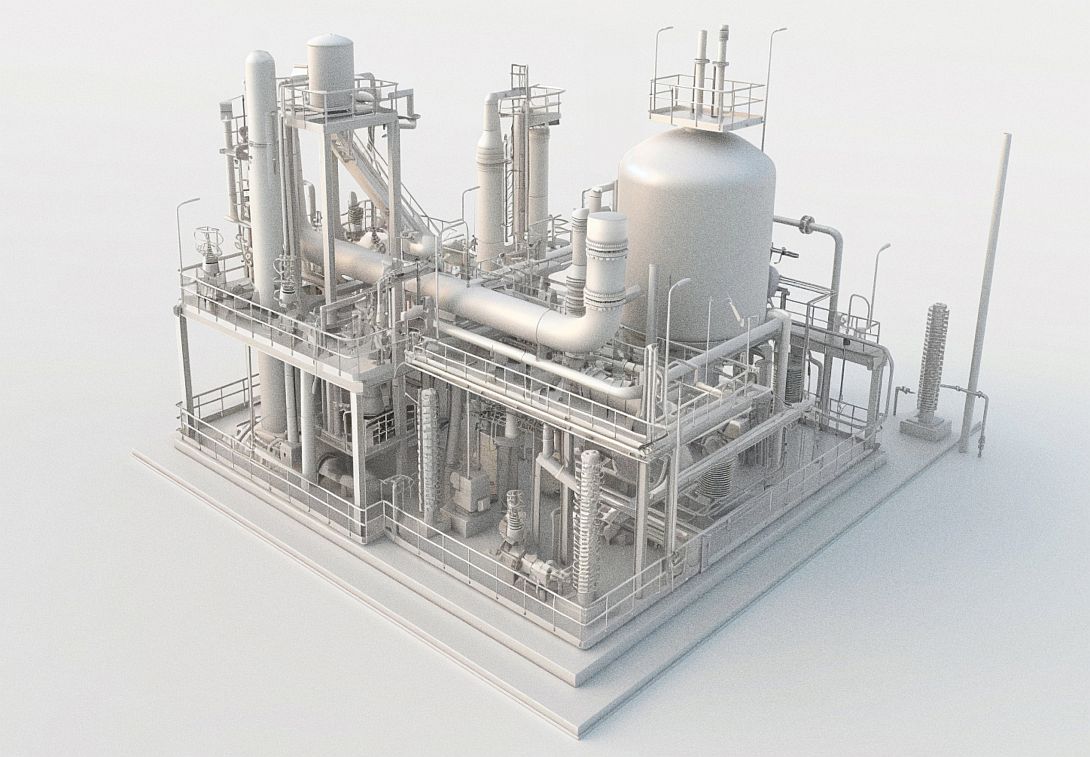
By Agroempresario.com
AltM, a Bangalore-based startup, is transforming agricultural waste into high-value products, using an innovative thermochemical process that could revolutionize industries ranging from cosmetics to adhesives. By using rice straw, sugarcane bagasse, and other agricultural residues, altM is addressing both environmental challenges and the need for sustainable alternatives to petrochemical-based materials.
The agricultural industry in India, like many other countries, faces an overwhelming problem: vast amounts of agricultural residue are generated every harvest season. From rice straw to sugarcane bagasse, millions of tons of waste are produced, much of which is either burned or left to rot. This leads to significant environmental problems, including air pollution and increased CO2 emissions. Yet, much of this waste has untapped potential.
AltM, a promising startup based in Bangalore, is determined to turn agricultural waste into a valuable resource. The company’s founders, Apoorv Garg (CEO) and Yugal Raj Jain (COO), have developed a thermochemical approach that allows them to transform lignocellulosic biomass into valuable products, such as industrial adhesives and cosmetic ingredients.
The startup's patented process involves applying heat and chemicals to break down agricultural biomass into different fractions. These fractions are then separated and purified, before being transformed into higher-value products. The advantage of altM’s method lies in its efficiency: it operates at temperatures lower than those typically required in traditional petrochemical production, using less energy and fewer chemicals.
“We can handle any kind of lignocellulosic biomass,” says Garg, “whether it's rice straw, wheat straw, sugarcane bagasse, hemp, cotton textile waste, or bioethanol refinery waste. The goal is to deconstruct these materials with minimal energy input, and without using high pressures or excessive chemicals.”

The company’s ultimate aim is to scale up its production process, making it commercially viable. After a successful pilot project, altM is on the brink of completing its pilot production unit, which will allow the startup to produce materials in bulk, rather than in small quantities. The pilot plant will focus on producing three different types of materials derived from the three main components of biomass: cellulose, hemicellulose, and lignin.
“We plan to produce rheology modifiers (viscosity modifiers for cosmetics) from cellulose, xylan (derived from hemicellulose) for gut health applications, and formaldehyde-free adhesives or UV blockers for the cosmetics industry,” explains Garg. “The goal is to demonstrate the scalability and commercial potential of these products to early customers.”
In addition to its pilot project, altM is also working with cosmetic formulators in India on trials for the viscosity modifier. Once these trials are successful, the company plans to scale up production and start delivering larger volumes to customers.
One of the core aspects that sets altM apart from other companies working with agricultural waste is its focus on thermochemical processing. While many companies use fermentation processes or enzymatic systems to produce bio-based materials, these methods are often difficult to scale and are more suited for producing high-value small-batch products. AltM, on the other hand, is focused on creating scalable solutions using thermochemical fractionation, which involves breaking down biomass at lower temperatures (less than 170°C), without the need for high pressure or large amounts of chemicals.
“The traditional petrochemical industry operates at temperatures of 850°C and pressures of 10-15 bar,” says Garg. “In contrast, our approach operates at much lower temperatures, with less than 3% chemicals by weight. This makes it more sustainable and cost-effective.”
Dr. Harshad Velankar, altM’s chief scientific officer, has been instrumental in developing the technology behind the company’s innovative approach. With over 20 years of experience in biomass transformation, Dr. Velankar has worked at top institutions and large chemical companies, including Praj Industries and Reliance Life Sciences. His research on the transformation of biomass at both fundamental and applied levels has been crucial to the development of altM's technology.
AltM’s business model revolves around turning waste into value. By utilizing agricultural residues that would otherwise be burned or discarded, the company is not only reducing environmental pollution but also providing a sustainable source of raw materials for industries that rely on petrochemical-based products. For example, the adhesives produced by altM’s thermochemical process are formaldehyde-free, making them a safer and more sustainable alternative to conventional wood adhesives.
Despite the significant benefits, the cost of sourcing agricultural waste remains an ongoing challenge. Prices for agricultural residues vary depending on the region and the type of waste being sourced. For example, sugarcane bagasse may be sold to other buyers for different applications, while rice straw prices can fluctuate based on the season. However, altM is working to create a more stable supply chain by building relationships with local farmers and agricultural mills to ensure a steady supply of raw materials.
Additionally, the company is focusing on minimizing the pre-processing requirements for the agricultural waste it uses. While rice straw may require significant pre-treatment, materials like sugarcane bagasse and textile waste require less preparation, making them more cost-effective to process.

AltM raised $3.5 million in August 2023 to help fund its expansion and the construction of its pilot facility. According to Garg, the funds have been used efficiently to build the pilot plant, which will have a capacity of 50 tons annually. The company aims to begin generating early revenue from customers in the fourth quarter of 2025.
The pilot facility will serve as a test bed for optimizing the production process, allowing altM to refine its methods before moving on to a full-scale commercial operation. The company has set its sights on building a commercial plant by the end of 2026 or the beginning of 2027.
As for competition, Garg believes altM’s ability to use multiple fractions of biomass gives it an edge over other companies in the space. While many competitors focus on using just one part of the biomass, altM is focused on maximizing the yield by utilizing as many components as possible.
